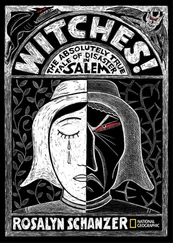Henry Peterson - Dulcibel - A Tale of Old Salem
Здесь есть возможность читать онлайн «Henry Peterson - Dulcibel - A Tale of Old Salem» — ознакомительный отрывок электронной книги совершенно бесплатно, а после прочтения отрывка купить полную версию. В некоторых случаях можно слушать аудио, скачать через торрент в формате fb2 и присутствует краткое содержание. Жанр: foreign_antique, foreign_prose, Сказка, на английском языке. Описание произведения, (предисловие) а так же отзывы посетителей доступны на портале библиотеки ЛибКат.
- Название:Dulcibel: A Tale of Old Salem
- Автор:
- Жанр:
- Год:неизвестен
- ISBN:нет данных
- Рейтинг книги:4 / 5. Голосов: 1
-
Избранное:Добавить в избранное
- Отзывы:
-
Ваша оценка:
- 80
- 1
- 2
- 3
- 4
- 5
Dulcibel: A Tale of Old Salem: краткое содержание, описание и аннотация
Предлагаем к чтению аннотацию, описание, краткое содержание или предисловие (зависит от того, что написал сам автор книги «Dulcibel: A Tale of Old Salem»). Если вы не нашли необходимую информацию о книге — напишите в комментариях, мы постараемся отыскать её.
Dulcibel: A Tale of Old Salem — читать онлайн ознакомительный отрывок
Ниже представлен текст книги, разбитый по страницам. Система сохранения места последней прочитанной страницы, позволяет с удобством читать онлайн бесплатно книгу «Dulcibel: A Tale of Old Salem», без необходимости каждый раз заново искать на чём Вы остановились. Поставьте закладку, и сможете в любой момент перейти на страницу, на которой закончили чтение.
Интервал:
Закладка:
When Ann Putnam, Mercy Lewis and Mary Walcott all united in charging little Dorcas Good – five years old! – with biting, pinching and almost choking them; "showing the marks of her little teeth on their arms, and the pins sticking in their bodies, where they had averred she was piercing them" – can any sane, clear-minded man or woman suppose it was an innocent delusion, and not a piece of horribly wicked lying?
When in open court some of the "afflicted" came out of their fits with "their wrists bound together, by invisible means," with "a real cord" so that "it could hardly be taken off without cutting," was there not only deception, but undeniable collusion of two or more in deception?
When an iron spindle was used by an alleged "spectre" to torture a "sufferer," the said iron spindle not being discernible by the by-standers until it became visible by being snatched by the sufferer from the spectre's hand, was there any self-delusion there? Was it not merely wicked imposture and cunning knavery?
I defy any person possessing in the least a judicial and accurate mind, to investigate the records of this witchcraft delusion without coming to the conclusion that the "afflicted girls," who led off in this matter, and were the principal witnesses, continually testified to what they knew to be utterly false. There is no possible excuse for them on the ground of "delusion." However much we may recoil from the sad belief that they testified in the large majority of cases to what they knew to be entirely false, the facts of the case compel us with an irresistible force to such an unhappy conclusion. When we are positively certain that a witness, in a case of life or death, has testified falsely against the prisoner again and again, is it possible that we can give him or her the benefit of even a doubt as to the animus of the testimony? The falsehoods I have referred to were cases of palpable, unmistakable and deliberate lying. And the only escape from considering it wilful lying, is to make a supposition not much in accord with the temper of the present times, that, having tampered with evil spirits, and invoked the Devil continually during the long evenings of the preceding winter, the prince of powers of the air had at last come at their call, and ordered a legion of his creatures to take possession of the minds and bodies that they had so freely offered to him. For certainly there is no way of explaining the conduct of the "afflicted circle" of girls and women, than by supposing either that they were guilty of the most enormous wickedness, or else that they were "possessed with devils."
CHAPTER XIII.
Dulcibel in Danger
The terrible excitement of these days was enough to drive the more excitable portion of the inhabitants of Salem almost crazy. The work of the house and of the farm was neglected; a large number of suspected persons and their relatives were sunk in the deepest grief, the families of some of the imprisoned knew not where to get their daily food; for their property was generally taken possession of by the officers of the law at the time of the arrest, the accused being considered guilty until they were proved to be innocent. Upon conviction of a capital offence the property of the condemned was attainted, being confiscated by the state; and the constables took possession at once, in order that it might not be spirited away.
And no one outside of the circle of the accusers knew whose turn might come next. Neither sex, nor age, nor high character, as we have seen, was a bar against the malice, or the wantonness of the "afflicted." The man or woman who had lived a righteous life for over eighty years, the little child who wondered what it all meant, the maiden whose only fault might be to have a jealous rival, all were alike in danger.
Especially were those in peril, however, who dared to take the side of any of the accused, and express even the faintest disbelief in the justice of the legal proceedings, or the honesty of the witnesses. These would be surely singled out for punishment. Again and again, had this been done until the voices of all but the very boldest were effectually silenced. Those arrested now, as a general thing, would confess at once to the truthfulness of all the charges brought against them, and even invent still more improbable stories of their own, as this mollified the accusers, and they often would be let off with a solemn reprimand by the magistrates.
Joseph Putnam and his male servants went constantly armed; and two horses were kept saddled day and night, in his stable. He never went to the village unaccompanied; and made no secret of his determination to resist the arrest of himself or, as he had phrased it, "any one within his gates," to the last drop of his blood.
Living with the Goodman Buckley who had leased the Burton property, was a hired man named Antipas Newton. He was a good worker though now getting old, and had in one sense been leased with the place by Dulcibel's father.
Antipas's history had been a sad one. Adopted when left an orphan by a benevolent farmer who had no children, he managed by diligence and strict economy to acquire by the age of thirty, quite a comfortable property of his own. Then the old couple that he called Father and Mother became converts to Quakerism. Fined and imprisoned, deprived of their property, and, after the expiration of their term of imprisonment, ordered to leave the colony, they had been "harbored" by the man for whom they had done so much in his early years.
Antipas was a person of limited intelligence, but of strong affections and wide sympathies. Again and again, he harbored these persecuted ones, who despite their whippings and banishment would persist in returning to Salem. Finally, Antipas himself was heavily fined, and his property sold to pay the fines. His wife had died early, but a young daughter who kept his house in order, and who had failed in her attendance at the church which was engaged in persecuting her father, was also fined heavily. As her father's property was all gone, and she had no money of her own, she could not pay the fine, and was put in prison, to be sent to Barbados, and sold as a slave, that thus the fine might be collected. But the anguish, and the exposure of her prison, were too much for the young girl; and she died before means of transportation could be found.
As a result of these persecutions, Antipas became demented. As his insanity grew evident, the prosecutions ceased; but he was still in danger of starvation, so few would give him employment, both on account of his impaired mind, and of the odium which attached to any friend of the abhorred Quakers.
Captain Burton, Dulcibel's father, came to the village at this time. He had been one of the sea-captains who had indignantly refused to take the Southwick children, or any other of the Salem children, to Barbados; and he pitied the poor insane man, and gave him employment. Not only did he do this, but, as we have said, made it an article of the lease of his property, that the Buckleys should also keep Antipas as a farm servant.
Antipas, to the general surprise of the villagers had proved to be an excellent servant, notwithstanding his insanity. Only on training days and other periods of excitement, did his insanity obtrude itself. At all other times he seemed to be a cheerful, simple-hearted, and very capable and industrious "hand."
To Dulcibel, as was natural, Antipas always manifested the greatest devotion. Her little black mare was always groomed to perfection, he never being satisfied until he took a white linen handkerchief that he kept for the purpose, and, passing it over the mare's shining coat, saw that no stain or loose black hair remained on it.
"You think that Mistress Dulcibel is an angel, do you not?" said one of the female servants to him about this time, a little scornfully.
Читать дальшеИнтервал:
Закладка:
Похожие книги на «Dulcibel: A Tale of Old Salem»
Представляем Вашему вниманию похожие книги на «Dulcibel: A Tale of Old Salem» списком для выбора. Мы отобрали схожую по названию и смыслу литературу в надежде предоставить читателям больше вариантов отыскать новые, интересные, ещё непрочитанные произведения.
Обсуждение, отзывы о книге «Dulcibel: A Tale of Old Salem» и просто собственные мнения читателей. Оставьте ваши комментарии, напишите, что Вы думаете о произведении, его смысле или главных героях. Укажите что конкретно понравилось, а что нет, и почему Вы так считаете.












